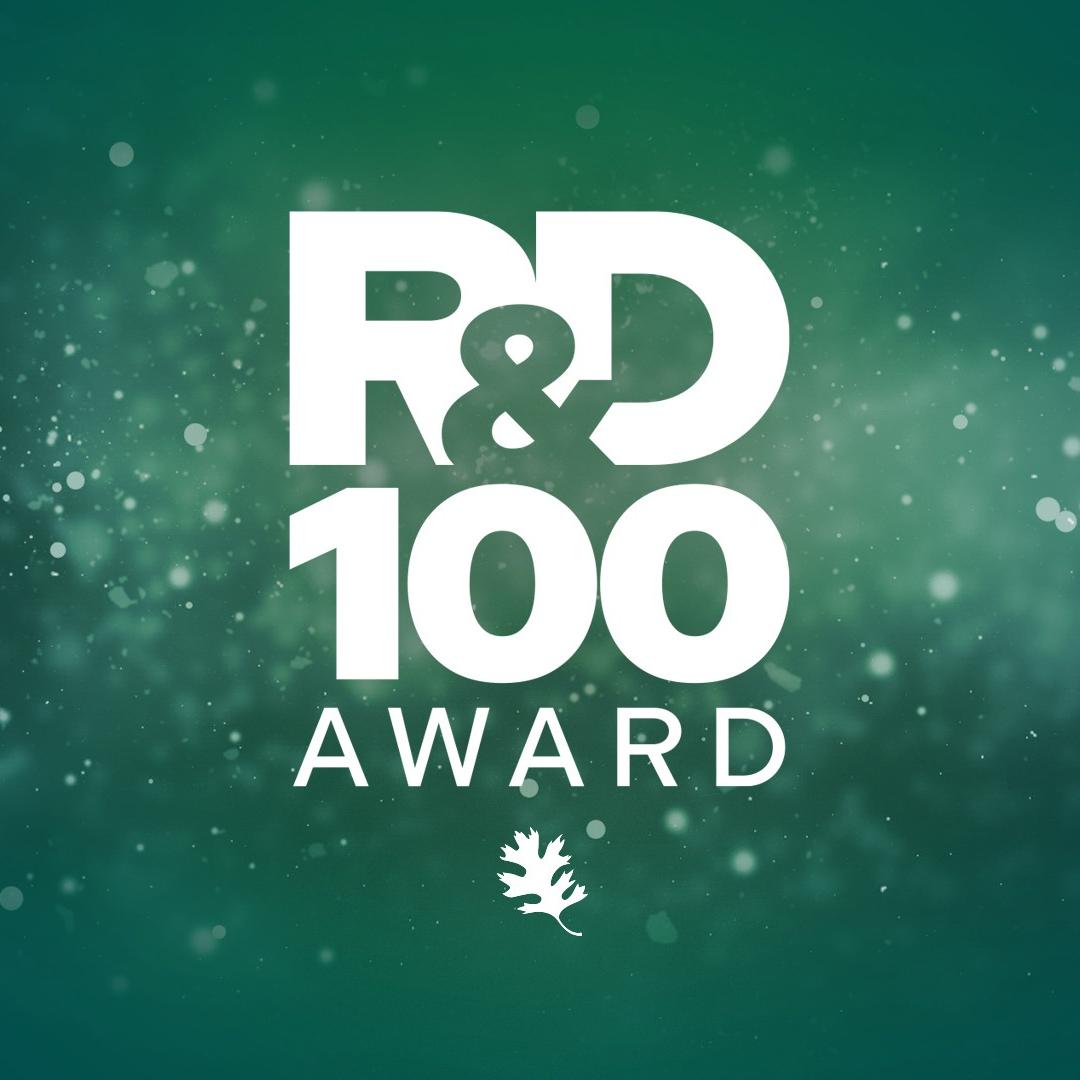
Filter News
Area of Research
- (-) Biology and Environment (79)
- (-) Materials (56)
- (-) National Security (11)
- Advanced Manufacturing (5)
- Biological Systems (2)
- Clean Energy (59)
- Climate and Environmental Systems (1)
- Computational Biology (2)
- Computational Engineering (2)
- Computer Science (5)
- Electricity and Smart Grid (1)
- Functional Materials for Energy (1)
- Fusion and Fission (25)
- Fusion Energy (13)
- Materials for Computing (6)
- Neutron Science (12)
- Nuclear Science and Technology (13)
- Quantum information Science (2)
- Supercomputing (67)
News Topics
- (-) Big Data (15)
- (-) Bioenergy (52)
- (-) Composites (11)
- (-) Fusion (9)
- (-) High-Performance Computing (28)
- (-) Mercury (7)
- (-) Microscopy (34)
- (-) Molten Salt (3)
- 3-D Printing/Advanced Manufacturing (29)
- Advanced Reactors (5)
- Artificial Intelligence (27)
- Biology (74)
- Biomedical (21)
- Biotechnology (13)
- Buildings (6)
- Chemical Sciences (35)
- Clean Water (14)
- Climate Change (45)
- Computer Science (48)
- Coronavirus (16)
- Critical Materials (13)
- Cybersecurity (21)
- Decarbonization (26)
- Energy Storage (38)
- Environment (102)
- Exascale Computing (6)
- Frontier (6)
- Grid (14)
- Hydropower (8)
- Irradiation (1)
- Isotopes (13)
- ITER (1)
- Machine Learning (21)
- Materials (79)
- Materials Science (82)
- Mathematics (3)
- Nanotechnology (42)
- National Security (35)
- Net Zero (3)
- Neutron Science (37)
- Nuclear Energy (21)
- Partnerships (16)
- Physics (30)
- Polymers (18)
- Quantum Computing (3)
- Quantum Science (12)
- Renewable Energy (2)
- Security (12)
- Simulation (15)
- Space Exploration (2)
- Summit (13)
- Sustainable Energy (44)
- Transformational Challenge Reactor (3)
- Transportation (17)
Media Contacts
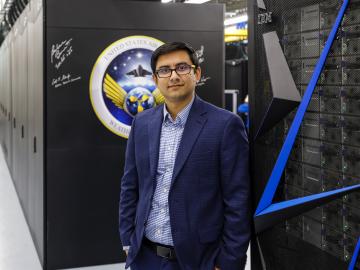
Climate change often comes down to how it affects water, whether it’s for drinking, electricity generation, or how flooding affects people and infrastructure. To better understand these impacts, ORNL water resources engineer Sudershan Gangrade is integrating knowledge ranging from large-scale climate projections to local meteorology and hydrology and using high-performance computing to create a holistic view of the future.
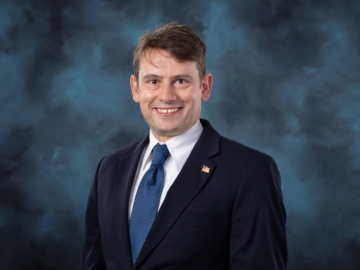
Andrew Lupini, a scientist and inventor at ORNL, has been elected Fellow of the Microscopy Society of America.
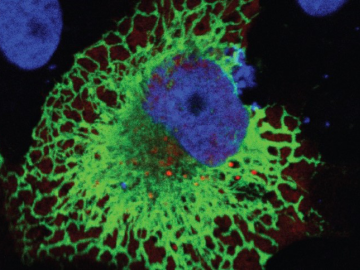
Oak Ridge National Laboratory scientists exploring bioenergy plant genetics have made a surprising discovery: a protein domain that could lead to new COVID-19 treatments.

Using disinformation to create political instability and battlefield confusion dates back millennia. However, today’s disinformation actors use social media to amplify disinformation that users knowingly or, more often, unknowingly perpetuate. Such disinformation spreads quickly, threatening public health and safety. Indeed, the COVID-19 pandemic and recent global elections have given the world a front-row seat to this form of modern warfare.
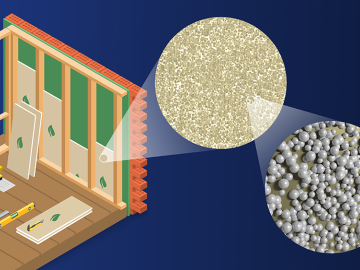
Scientists at ORNL developed a competitive, eco-friendly alternative made without harmful blowing agents.
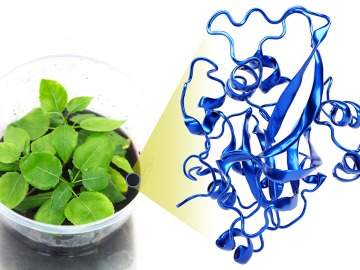
ORNL researchers have identified specific proteins and amino acids that could control bioenergy plants’ ability to identify beneficial microbes that can enhance plant growth and storage of carbon in soils.

The Center for Bioenergy Innovation has been renewed by the Department of Energy as one of four bioenergy research centers across the nation to advance robust, economical production of plant-based fuels and chemicals.
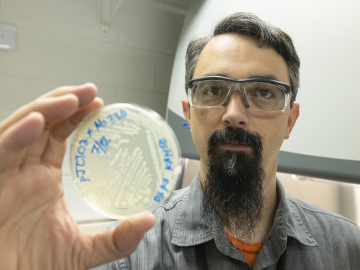
A DNA editing tool adapted by Oak Ridge National Laboratory scientists makes engineering microbes for everything from bioenergy production to plastics recycling easier and faster.
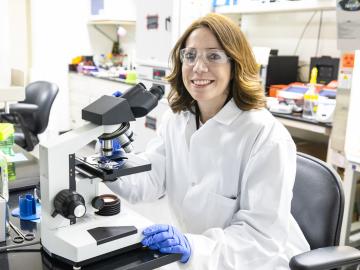
Joanna Tannous has found the perfect organism to study to satisfy her deeply curious nature, her skills in biochemistry and genetics, and a drive to create solutions for a better world. The organism is a poorly understood life form that greatly influences its environment and is unique enough to deserve its own biological kingdom: fungi.
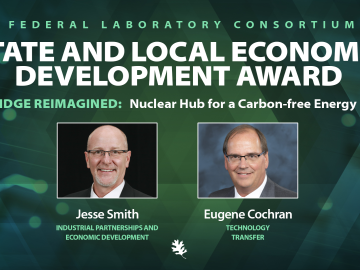
A partnership of ORNL, the Tennessee Department of Economic and Community Development, the Community Reuse Organization of East Tennessee and TVA that aims to attract nuclear energy-related firms to Oak Ridge has been recognized with a state and local economic development award from the Federal Laboratory Consortium.


